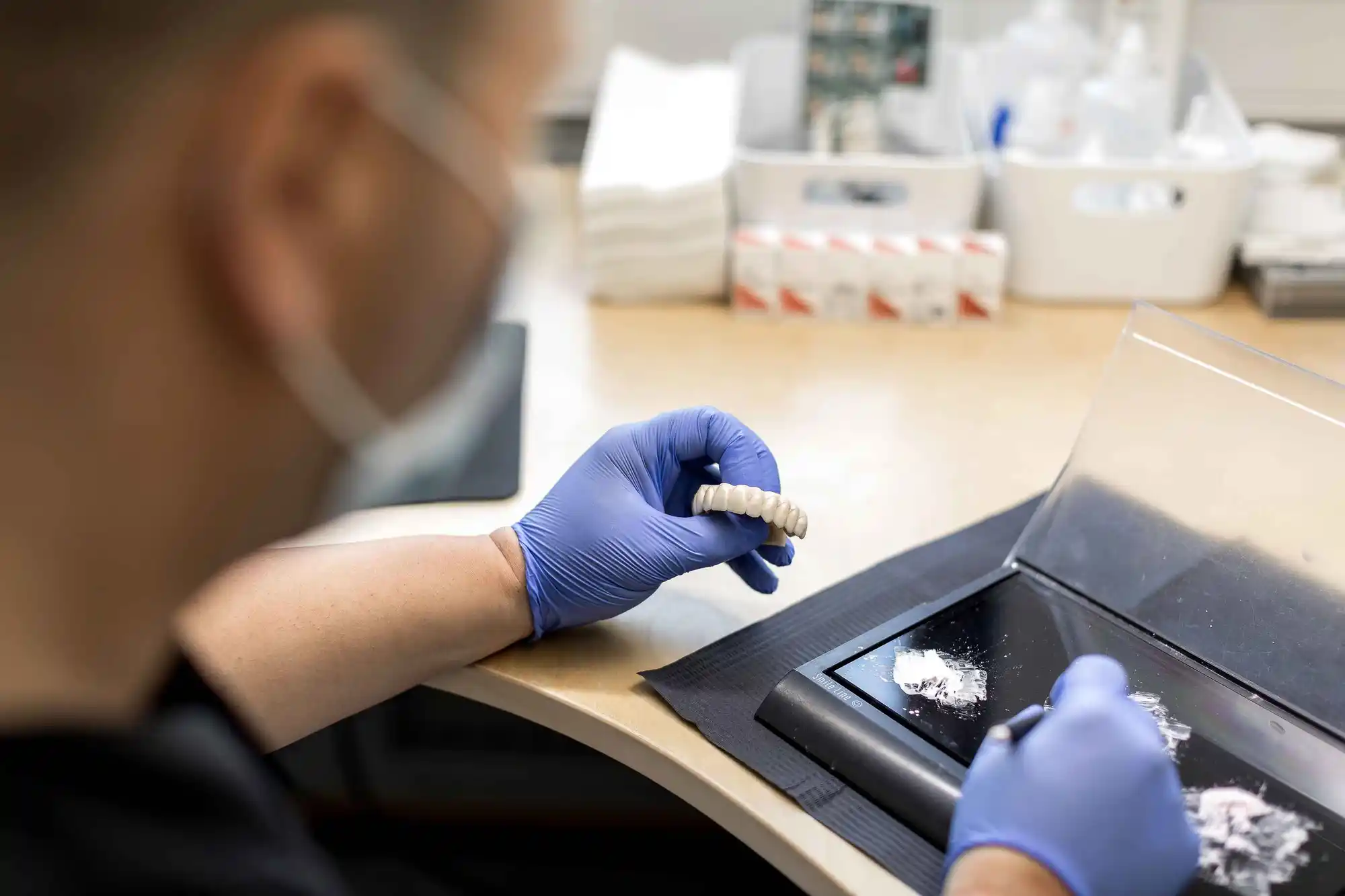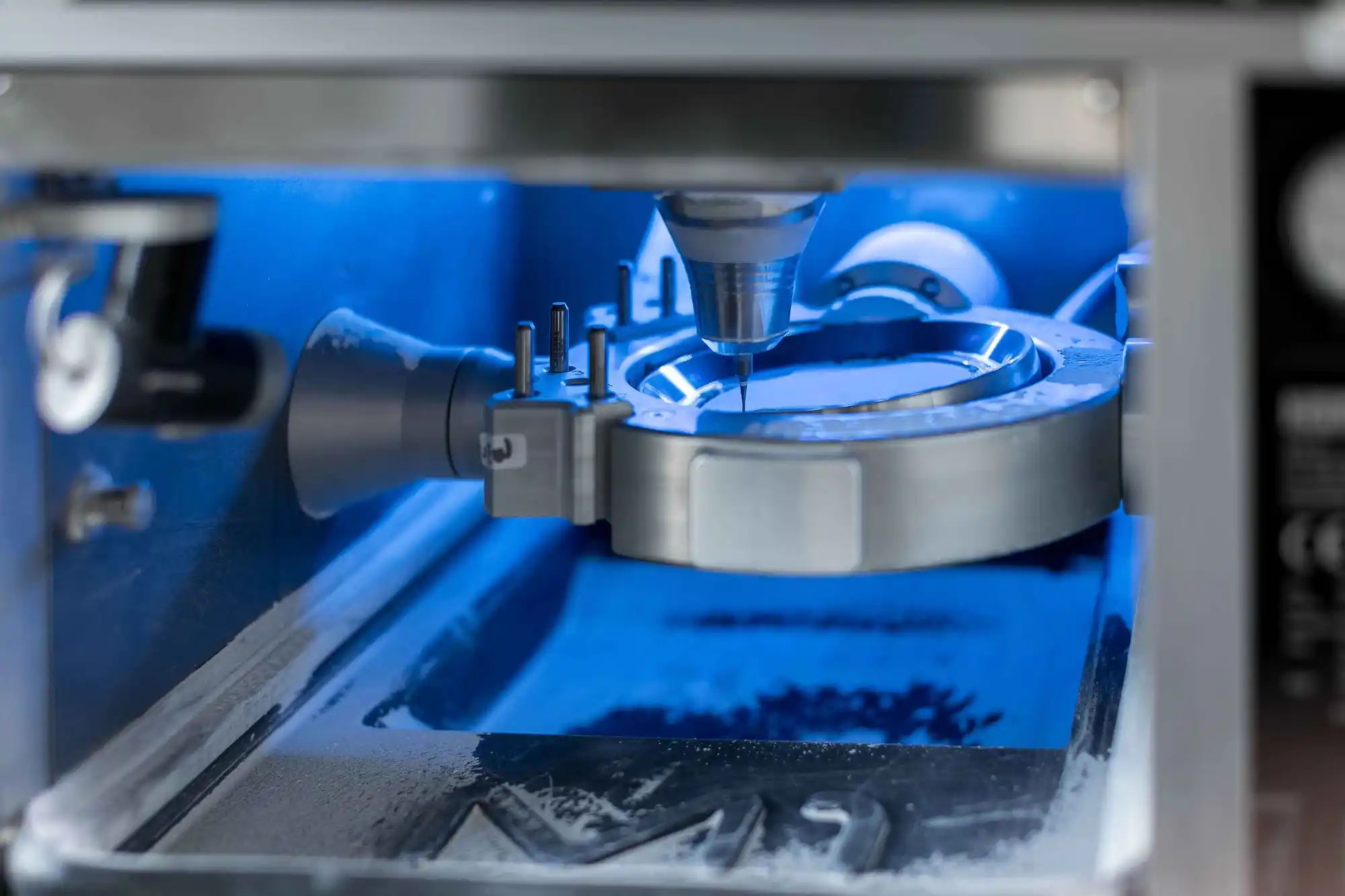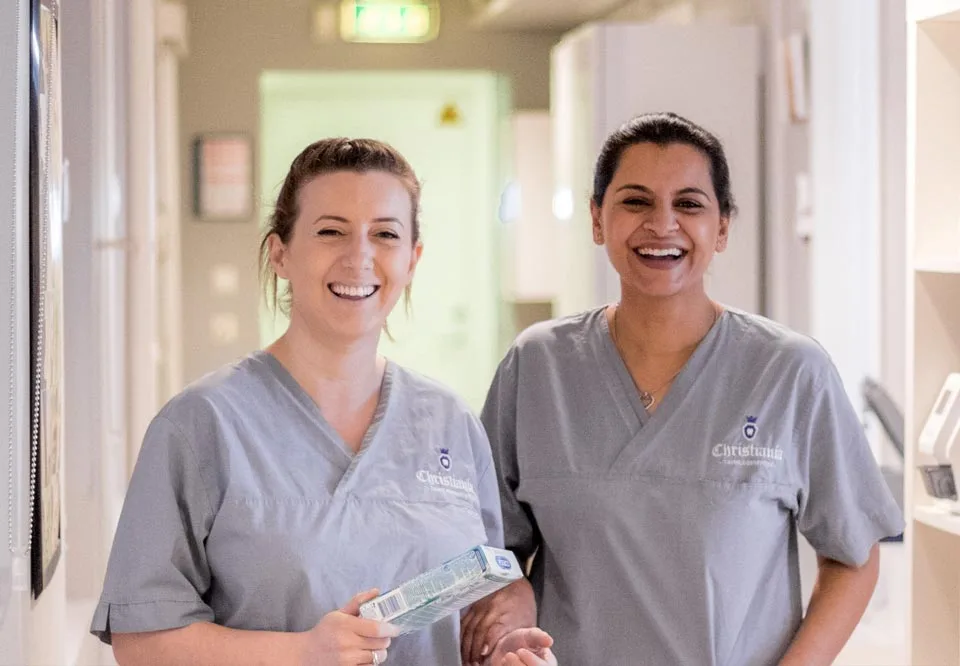What types of prostheses do we have:
Basically, we distinguish between 2 types of prostheses; Full prosthesis (denture) or partial prosthesis.
If you have a set of residual dental teeth that can be used to attach a partial denture, it will often be a great advantage. If none of the teeth can be preserved, you will need a complete denture.
A prosthesis is made after an accurate impression of the jaw comb. We use a gum-colored acrylic material where artificial teeth in plastic are attached. The prosthesis for the lower jaw is horseshoe-shaped because there must be room for the tongue.
Denture procedure
After examination, the dentist takes a casting of your jaw. The dental technicians will then adapt a wax structure to the prosthesis.
This will then be turned into acrylic and adapted so that it fits in your mouth. After delivery of the prosthesis, it must be assumed that the adaptation of the prosthesis takes some time. It is not uncommon for the dentist to make incisions on the prosthesis afterwards for the prosthesis to adapt better.
It takes 2 – 4 weeks from the start of a treatment until the prosthesis is finished. In special cases, we can do it much faster as we have dental technicians at the clinic who can help us.
Important control at the dentist when using a denture

Denture care
There are always small changes in the mouth and the prosthesis will eventually get worse. This means that it becomes more difficult to chew with, that it loosens when you speak and that the gums on which the prosthesis rests can be irritated and even provide a breeding ground for fungal infection (candida infection).
The prostheses must be removed and cleaned twice a day. You should do this while brushing your teeth. The denture can be cleaned in the same way as your own teeth; brush them with the toothbrush. You should not use toothpaste on your denture.
As mentioned above, the dentist can underlay the prosthesis on the inside or perhaps renew the inside (rebasing) the pink plastic (acrylic) that the teeth are in.
You should see your dentist at least 1-2 times a year to maintain your teeth and gums. On these visits, we remove bacterial deposits and discoloration on teeth and dentures and ensure that residual teeth stay healthy.

Denture fastener
If your prosthesis is not firmly attached, we recommend that you use an adhesive under the prosthesis that glues the prosthesis to the mucous membrane. There are several different fasteners. The one we recommend is Corega, which is a cream-shaped fastener that is applied and can work for a whole day.
Should I use the prosthesis at night
It is entirely up to you what you prefer. It is beneficial to use the prosthesis at night if you are bothered by pain in the jaw joints and facial muscles. The prosthesis can then have a stabilizing and relaxing effect. If you do not sleep with the prosthesis at night, the prosthesis can lie dry in the bedside table drawer.

Dental prosthesis NAV
If you do not have the funds yourself for your own stay, you can apply to NAV for support to cover the costs of the prosthesis. In many cases, HELFO will also be able to help reduce your costs. Our dentists are up to date on what support schemes apply to you. A tip is that you now take care of dental health journals and obtain old journals. HELFO often requires this in order to give you support. If you receive support from HELFO, you will only have to pay the deductible

Dentures Oslo
Christiania dental center has 3 dental techniques with us that can help us create a solution that is best for you. We can offer you the prosthesis repaired on the day if you are unlucky and, for example, damage the prosthesis.
Christiania Dental Center is located in the center of Oslo, right next to Oslo Plaza and Oslo Central Station.

